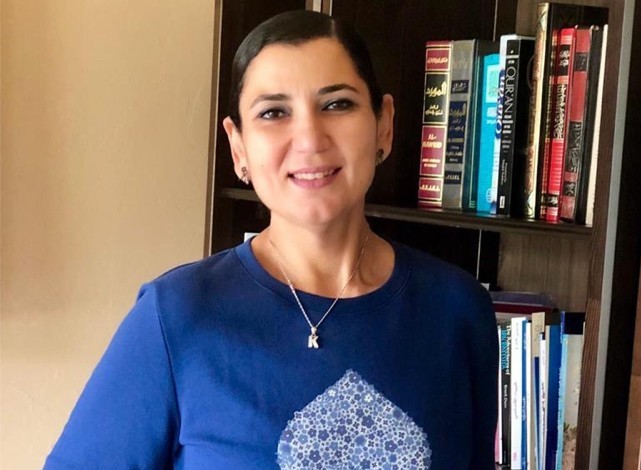The United States and the Gulf: Hard Power, Soft Power, Shifting Power, New Power?
The United States is the most important external country in the
Gulf. For the Arab states of the Gulf,
the United States (via the Carter Doctrine) is the ultimate guarantor of
national survival. For Iran, the United
States is the Great Satan, the arrogant imperialist hegemon whose designs on
control must be resisted. The US dollar is the dominant reserve currency in the region, American cultural and social institutions ...
Abstract
The United States is the most important external country in the
Gulf. For the Arab states of the Gulf,
the United States (via the Carter Doctrine) is the ultimate guarantor of
national survival. For Iran, the United
States is the Great Satan, the arrogant imperialist hegemon whose designs on
control must be resisted. The US dollar is the dominant reserve currency in the region, American cultural and social institutions are
prevalent throughout the region, the United States is the largest exporter of
key items such as aircraft as well as the destination of choice for higher
education in the region. The United
States has the ability to unilaterally enact economic sanctions which only a
handful of countries can evade, and retains the only rapid deployment military
reinforcement ability in the region. Given these interests, it is not surprising that political and
security developments in the United States are closely watched. The last eight years have the American role
in the region change in ways unseen since the Iranian revolution and Soviet
invasion of Afghanistan in 1979. First,
under the Obama administration, an agreement was struck with Iran – largely
without consultation with the Gulf Arab States – which both re-admitted Iran to
the global financial system as well as permitted Iranian nuclear activity in
excess of international standards. Second, under the administration of Donald Trump, the Iran deal was
vacated by the United States (to general applause from the Arab states of the
Gulf and general dismay elsewhere), and a hardening of political tone emanated
from Washington, accompanied by an uptick in various Iranian and Iranian proxy
attacks, including military attacks on American interests in Iraq, missile and
drone attacks in Saudi Arabia, and naval mines found on ships in the Gulf as
well as the Arabian Sea. Will the Gulf emerge as a self-contained economic and security
region, will it continue to be a key part of the networks of both security and
economic cooperation, or will it become a battlefield for renewed great power
cooperation? These questions have been
active but unresolved for the last eight years, and seem likely to remain so. With the end of the Trump administration, what will American
relations with the Gulf look like? In
spite of political rhetoric, the American military footprint committed to Gulf
defense has remained relatively stable: will that change? Will outside powers, such as the BRICS or the
European Union, form a new security regime?
Will Iran remain as the power to be hedged against, or will it enter
into a new security regime with its Arab neighbors? Will soft power, economic power, or some
combination of other elements of national power move to the front of American
tools in the region? Will the COVID virus and its impact have a long term
impact on America’s role in the Gulf?This edition of the GRM takes place at a time when the Gulf region
has faced numerous turbulent years, and when the world is looking to a changed
United States administration to try and get a pulse of what will happen. This workshop comes at a key moment to assess
in a comprehensive way what other crucial dynamics are impacting the Gulf region
and how such dynamics will continue to do so in the near future.
Description and Rationale
The aim of this workshop is to describe the various ways in which
the United States and the Gulf have, can, and should enact. The change in
American administrations is as marked as any in American history, and at the
same time the old traditional rulers of the Arab Gulf states are being replaced
by a new generation, even as Iran’s theocratic leaders age and a new Iranian
political order seems to coalesce. The economic and social disruption caused by the global pandemic is
spurring all states to consider the nature of regional and international order
as well as their place in the international order. The Gulf states, with their reliance upon
external partners for trade, food security, and military security, are the top
tier of countries which must accurately assess international developments for
their own prosperity and survival. Identifying various trends in the Gulf, the United States, and the
global systema and then applying them to the region will help scholars,
observers, and policy makers understand, explain, and predict actions in the
Gulf region.
Contribution to Gulf Studies:
This workshop will examine a multitude of disciplines and subjects
on US relations to the Gulf. Given the extraordinary changes underway in the
global environment, the United States and the states of the Gulf, this volume
will be one of the first focused interdisciplinary studies of the region, it’s
relations with the United States, and the factors which may enable or restrain
future relations between the two. The workshop will also seek to examine if the importance of the
United States to the Gulf is increasing, or if it is being supplanted by global
economic developments, American lack of interest, the rise of Europe, Russia,
or China, climate developments, or other factors.
Anticipated Participants:
We will be interested to
discuss the above-mentioned topics from various perspectives. For instance, we
welcome papers:
- on the way policymaking and perceptions of the
regional dynamics in the United States (through country-specific or more
inclusive studies) differ from, clash with, or complement the Gulf
- on one particular aspect of bilateral and
multilateral international relations between the United States and the Gulf
(for example, an examination of US-GCC investment and trade cooperation,
cultural ties, security issues, etc.) and what impact, if any, it has on the
overall dynamics of the region
- case studies
on efforts by one or several Gulf countries to enhance their relationship with
the US or to diversify with other partners.
- Papers with a focus on functional cooperation
between USA and the Gulf States with an analysis on areas that have been
successful or less than successful in the past.
- Stabilization
and security paradigms, which include US-Iraq, US-Yemen, US- GCC, and US-Iran
relations
- The role of major powers (US, Russia, China, EU) in
arms sales to the GCC and the wider Gulf
- The impact of
enhanced Great Power Competition on US relations with the Gulf
- The impact
of recent developments (relation with Israel and Al Ula Summit) on the Gulf.








